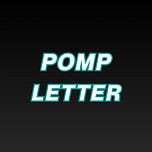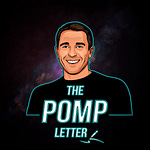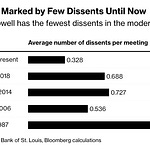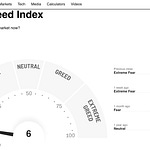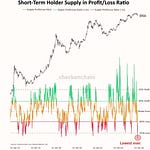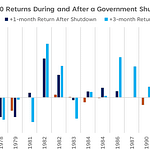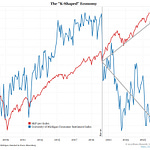To investors,
Everyone is in the talent business. Whether you are an entrepreneur, investor, or an employee of a large corporation, we are all trying to find great people to work with. This activity is fairly opaque, so most people rely on their intuition. If you ask them “are you good at finding great talent?,” they will quickly say yes.
But is that really true? How do you know you are good? What does it take to find the best talent in the world?
These questions led me to read a new book over the weekend from Tyler Cowen and Daniel Gross called Talent: How to Identify Energizers, Creatives, and Winners Around the World. As we all know, non-fiction business books can be dry and hard to read, but this one was very well done. It was concise, full of examples, and clearly communicated a number of powerful ideas.
I took pages of notes from the book, but here are some of the main ideas that may help you in your day-to-day job:
First, talent search is key to everything we do.
“Talent search is one of the most important activities in virtually all human lives.”
“The practical value is that identifying underrated talent is one of the most potent ways to give yourself a personal or an organizational edge.”
“Talent search is a fundamentally optimistic endeavor, based on the premise that there is always more value to be found in our world. But finding this talent is itself a creative skill, akin to music or art appreciation. It cannot be done by boilerplate interviews, groupthink, algorithms, studying PowerPoints, or simple formulas.”
“Any move to become a better appreciator of the talents and virtues of others probably also will improve your skills at ruthlessly identifying the causes of human failure.”
Second, a key idea throughout the book is that you can usually tell more about someone from what they do outside their work hours.
“Daniel recalls that he first learned from Tyler this question for prospective hires: "What is it you do to practice that is analogous to how a pianist practices scales?" You learn what the person is doing to achieve ongoing improvement, and perhaps you can judge its efficacy or even learn something from it. You also learn how the person thinks about continual self-improvement, above and beyond their particular habits. If a person doesn't practice much, they still might be a good hire, but then you are much more in the world of "what you see is what you get," which is valuable information on its own. If the person does engage in daily, intensive self-improvement, perhaps eschewing more typical and more social pursuits, there is a greater chance they are the kind of creative obsessive who can make a big difference.”
“Personality Is Revealed During Weekends.”
“Especially for higher-level jobs, the question of spare time is a critical one. The very best performers don't stop practicing for very long, and if you hear or sense that a person doesn't do much practicing and skill refining in his or her spare time, they probably are poorly suited to assume a top position or to meet very high expectations.”
Third, Sam Altman who used to run YCombinator has a quote in the book that describes one of the key differences between the program’s most successful founders and everyone else.
Sam: There was a big difference in “how quickly our best founders, the founders that run billion-dollar-plus companies answer my emails versus our bad founders. I don't remember the exact data, but it was mind-blowingly different. It was a difference of minutes versus days on average response times.”
Daniel and Tyler saw this as interesting and important because “this quality of speed of response is picking up on how much the individual is focused on being connected to the world and responding to plausibly important queries.”
Fourth, the book hammers home the point that most interview questions are actually very bad.
“A good rule of thumb is this: if you found your question in a job interview book or on a website, it is likely you are simply testing the candidate's preparation level.”
So what exactly are Tyler and Daniel suggesting an interviewer should try to evaluate during the interview? It boils down to whether the person can do the job well. This leads to a discussion around the Big Five Personality Traits, how to conduct interviews, and the differences between in-person and remote interviews.
Fifth, a very interesting point in the book surrounds the idea of intelligence. Most people would tell you that they are looking for an intelligent person when searching for talent. But the book lays out a strong argument that intelligence may not matter as much as you would think for most roles, but it could matter more than you think for the highest achievers.
“After a long back-and-forth, we've concluded that intelligence usually is overrated, most of all by people who are smart.”
“Intelligence can help a person find new ideas and put the pieces together where others cannot, and extreme intelligence may be required to be credible when exhibiting the highest levels of leadership skills, especially when you are leading other very smart people.”
“If you are looking for inventors, IQ is by far the most significant of all the measurable variables we have. Furthermore, at higher levels of measured IQ the probability of becoming an inventor rises all the more.”
“The data for that population show that personality and conscientiousness matter most at the bottom of the distribution. For instance, in the bottom tenth of earners, non-cognitive skills which include, for instance, features of personality matter two and a half to four times more than do cognitive skills.”
“Smart people can feed off each other and make each other better, within companies and even within nations.”
Lastly, there are two key concepts introduced by the book that I found helpful. The first is stamina and the second is rate of improvement. On stamina, they say:
“We see stamina as one of the great underrated concepts for talent search, especially when you are looking for top performers and leaders and major achievers.”
“Because stamina can matter a good deal, and because stamina can be so hard to read in a short interaction, this is yet another reason to interview a person's references. Remember our saying "Personality is revealed on weekends"? Well, a person's references often have a pretty good idea of what that individual is up to on weekends, or weekdays for that matter. A judgment of stamina in particular may require observation over longer periods of time, and so your skills as an interviewer need to be multifaceted and directed toward the references as well.”
And next, on rate of improvement, Tyler and Daniel write: “Consistent with the import of stamina, as discussed in the previous chapter, look to see if a person shows signs of improvement each time you meet with them. Does the person have an obsession with continual self-improvement? Let's turn again to the words of venture capitalist Sam Altman:
“It's easiest if you get to meet people in person, several times. If you meet someone three times in three months, and notice detectable improvement each time, pay attention to that. The rate of improvement is often more important than the current absolute ability (in particular, younger founders can sometimes improve extremely quickly).”
The power of compound returns is important for human talent, just as it is for your stock portfolio.”
They punctuate this point by writing “one of your most significant skills as a talent evaluator is to develop a sense of when people are moving along a compound returns curve or not.”
Whether you think you’re a good evaluator of talent or not, I recommend checking out Tyler Cowen and Daniel Gross’ new book. You can buy it here (I am not affiliated in any way, nor receive no financial benefit). I found it informative and have already identified a few changes that I will be making to the interview processes that I run.
I would love to hear your thoughts on talent identification and interview process. What questions do you like to ask? What qualities do you look for? Leave a comment on this post and I’ll respond to as many as I can later today. (if you’re reading this on email, click the title and it will take you to a browser page)
Hope each of you has a great day. I’ll talk to everyone tomorrow.
-Pomp
🚨 SPONSORED: AG1 by Athletic Greens is the single best option for easy optimal nutrition. Not only do I take AG1 every day, but I liked the product so much I became an investor in the business.
AG1 delivers 75 vitamins, minerals and whole-food sourced nutrients. That’s the equivalent of 9 other products: your probiotic, your multivitamin, your daily supplement (you get the picture)—all in a single serving that you mix with water. If you’re looking to fill nutritional gaps and have more energy, it’s an absolute no-brainer.
David Puell runs On-Chain Research at ARK Invest.
In this conversation, we discuss Bitcoin's recent performance, how the macro economy is affecting Bitcoin, long-term vs. short-term holders, Ethereum's merger, and what risks are associated with this move.
Listen on iTunes: Click here
Listen on Spotify: Click here
Weekly Bitcoin Update
Podcast Sponsors
These companies make the podcast possible, so go check them out and thank them for their support!
Alto IRA can help you invest in crypto in tax-advantaged ways to help preserve your hard earned money. There are no setup or account fees, and it’s all you need to do to invest in crypto tax free. Open an Alto CryptoIRA to invest in crypto tax-free by clicking here.
Eight Sleep is the most advanced solution on the market for thermoregulation by pairing dynamic cooling and heating with biometric tracking. Click here to check out the Pod Pro Cover and save $150 at checkout.
FTX US is the safe, regulated way to buy digital assets. Trade crypto with up to 85% lower fees than top competitors by signing up at FTX.US today.
Amberdata provides the critical data infrastructure enabling financial institutions to participate in the digital asset class. We deliver comprehensive data and insights into blockchain networks, crypto markets, and decentralized finance. Download our Digital Asset Data Guide here today.
SiGMA is the bridge between iGaming, online sports betting, and emerging technology, such as Blockchain, NFTs, fintech, GameFi, metaverse, and AI, is loud and clear. The largest global summit of this kind is heading to Malta from November 15 to 17. Log on to AIBC.WORLD or SiGMA.WORLD to see all our upcoming global summits!
Bullish is a powerful exchange for digital assets that offers deep liquidity, automated market making, and industry-leading security. Click here to learn more.
Valour represents what’s next in the digital economy -- providing simplified, trusted access to crypto, decentralized finance and Web 3.0 investment opportunities. For more information visit valour.com
Unstoppable Domains’ 10 NFT domain endings are now fully integrated with Trust Wallet. Claim your Unstoppable Domain here today.
Compass Mining is the world's first online marketplace for bitcoin mining hardware and hosting. Visit compassmining.io to start mining bitcoin today!
LMAX Digital is the market-leading solution for institutional crypto trading & custodial services. Learn more at LMAXdigital.com/pomp
Exodus is the world’s leading desktop, mobile, and hardware crypto wallets, with over 150 assets. Founded in 2015 to empower people to control their wealth. Visit http://exodus.com/pomp today.
You are receiving The Pomp Letter because you either signed up or you attended one of the events that I spoke at. Feel free to unsubscribe if you aren’t finding this valuable. Nothing in this email is intended to serve as financial advice. Do your own research.

